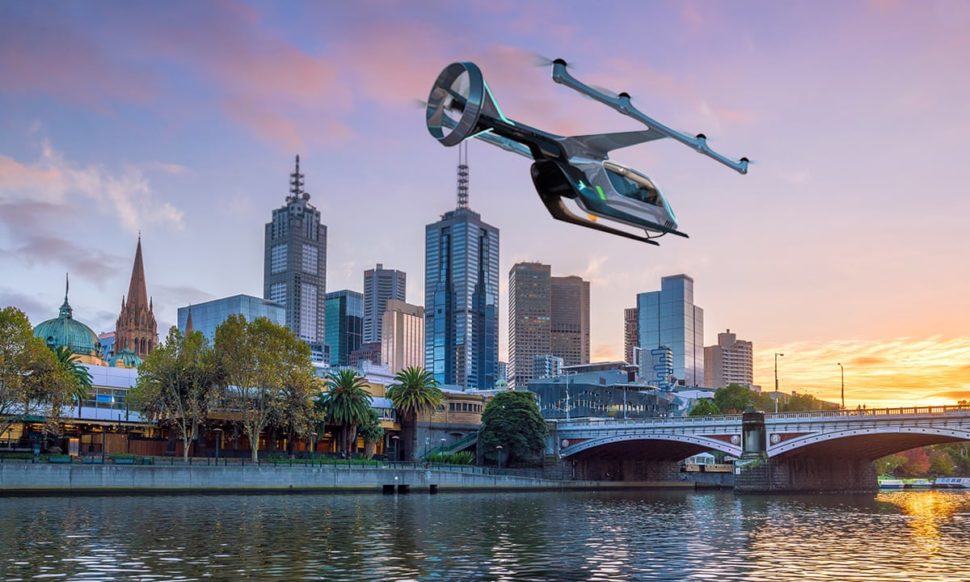Yesterday, Uber Air announced at the annual Uber Elevate Summit in Washington that its flying taxi service would have a commercial trial run in Melbourne by 2023. The Australian city is the first location outside of the United States that will host the ride-sharing company’s trial commercial flights.
In a statement, Uber Australia’s Regional General Manager Susan Anderson said:
“Australian governments have adopted a forward-looking approach to ridesharing and future transport technology. This, coupled with Melbourne’s unique demographic and geospatial factors, and culture of innovation and technology, makes Melbourne the perfect third launch city for Uber Air. We will see other Australian cities following soon after.”
Aside from Melbourne, Uber is also planning to launch its flying taxi service in two key US cities – Dallas-Fort Worth in Texas and Los Angeles in California. The company said that test flights would begin next year.
Uber Air to Face Market and Policy Challenges
While Uber Air’s future flying taxi service has already generated excitement among the people, the company still has some significant challenges to face.
Flying taxi service is a relatively new form of public transportation that requires Uber to prove its safety and efficiency not just to the public but to government officials as well.
Furthermore, Uber’s flying vehicle uses battery power instead of gas to operate. Meaning, the company’s battery technology must be powerful enough to support multiple flights to different destinations.
Other things Uber also has to consider are the landing and take-off pads for its VTOL vehicle, pilot training, and air traffic control and regulation. Peter Gibson, a spokesperson for Australia’s Civil Aviation Safety Authority, told a local newspaper:
“There is going to be a lot of safety challenges involved in this — that’s obvious — but we are certainly well prepared for this.”
Gibson further said that the drone delivery trial Google ran in Canberra had already kickstarted some of the issues flying vehicles would encounter.
“There will be new ones but we are certainly well developed. A lot can be done within the existing regulatory framework but there may be areas we have to expand. This is day one of work starting — there are lots of issues to be worked out.”














Comments (0)
Most Recent